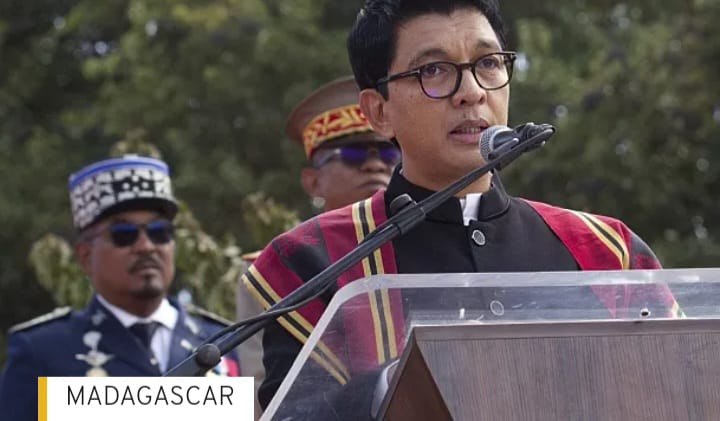
By : Chinasaokwu Helen Okoro
Madagascar on Edge: President Rajoelina to Address Nation Amid Crisis
Madagascar is standing at a critical crossroads as President Andry Rajoelina is expected to deliver a much-anticipated national address this evening amid rising political tensions and an apparent rift within the country’s armed forces.
The question on every Madagascan’s mind right now is simple yet deeply unsettling: Where is President Andry Rajoelina?
Since last Saturday, the president has largely remained out of the public eye, prompting widespread speculation about his whereabouts and control over the state. His only public communication came through a brief written statement asserting that he remains “on Madagascan soil” and condemning what he described as “an attempted destabilization and illegal seizure of power.”
But as hours turn into days, uncertainty continues to cloud the nation. The tension began escalating earlier this week when CAPSAT — the strategic military barracks responsible for overseeing the country’s weapons and ammunition — issued a dramatic call urging all security forces to disobey their existing commanders and “stand with the people.”
That message triggered shockwaves across the political and military establishment, as CAPSAT holds significant influence within Madagascar’s defense structure. Within 24 hours, reports emerged that the gendarmerie, a powerful paramilitary unit, had declared its support for the military faction. By midweek, several local media outlets reported that the entire army was now operating under CAPSAT’s directives, effectively sidelining the civilian government.
In a further sign of deepening crisis, the Chief of Staff was swiftly replaced — though officials have offered little detail on who currently commands the armed forces. The sudden changes have left citizens anxious and foreign observers alarmed, raising fears that the island nation could be sliding toward another political confrontation similar to past episodes of military intervention.
Madagascar, one of Africa’s most politically volatile democracies, has experienced multiple coups and contested transitions over the past two decades. Rajoelina himself rose to power in 2009 following a military-backed coup that ousted then-President Marc Ravalomanana. Though he returned to office through elections a decade later, his leadership has often been criticized for concentrating power and sidelining opposition voices.
This latest crisis, however, appears to be the gravest challenge to his authority since his return to the presidency. The president’s physical absence from the public stage — combined with the rapid shift in military loyalties — has fueled rumors of internal divisions within his administration and possible fractures within the security hierarchy.
As the situation unfolds, daily life in the capital, Antananarivo, has become increasingly tense. Residents report heightened security around government buildings, sporadic demonstrations, and heavy military presence near major intersections. While no large-scale violence has been reported, the atmosphere is thick with apprehension and speculation.
International observers, including representatives from the African Union and the United Nations, have called for calm and urged all parties to respect constitutional order.b “Dialogue, restraint, and respect for democratic institutions must guide the way forward,” an AU spokesperson said in a brief statement earlier today.
All eyes are now fixed on Rajoelina’s scheduled national address at 7 p.m. local time — a moment many hope will provide clarity on who truly controls Madagascar and how the government plans to restore stability. Political analysts suggest that the tone and content of his speech could determine whether the nation steps back from the brink or slides further into turmoil.
For now, the island nation waits — its people caught between uncertainty and hope. In the streets, whispers of possible negotiations, arrests, or even resignation swirl, but nothing has been confirmed. The only certainty is that tonight’s speech could mark a turning point in Madagascar’s turbulent political journey.
As dusk falls over Antananarivo, the countdown begins. Will President Rajoelina’s address calm the storm — or ignite a new chapter of crisis in Madagascar’s fragile democracy? The world watches, and the nation holds its breath.



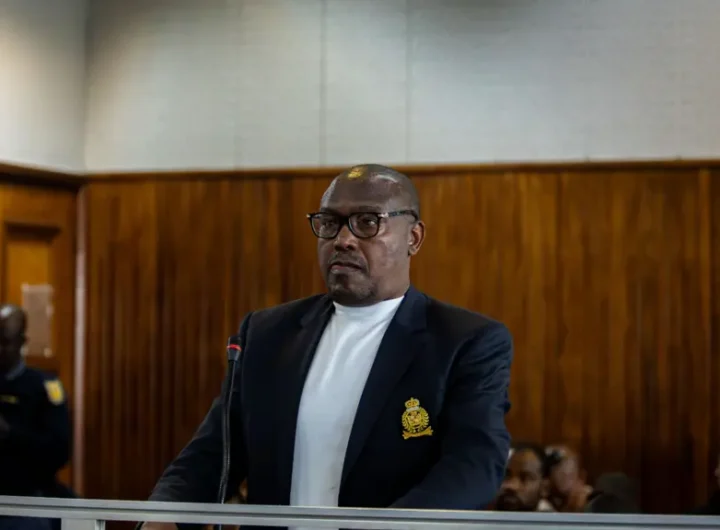 Johannesburg High Court Grants Alleged Crime Boss Katiso Molefe R400,000 Bail
Johannesburg High Court Grants Alleged Crime Boss Katiso Molefe R400,000 Bail  Myanmar Festival Bombing Kills 24
Myanmar Festival Bombing Kills 24 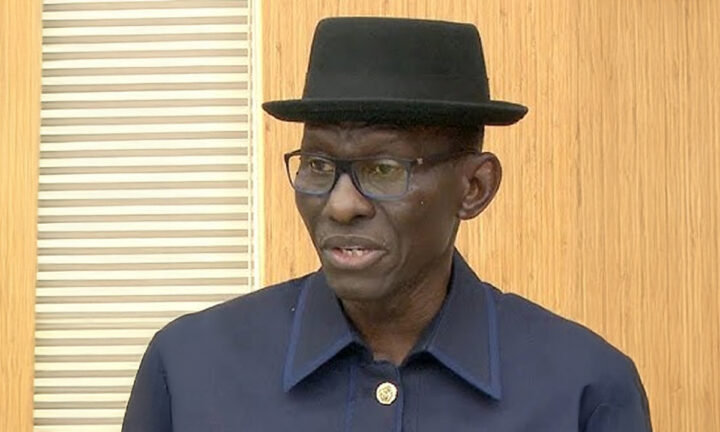 Nigeria Must Declare War On Terrorists — Ex-CDS Irabor Tells FG
Nigeria Must Declare War On Terrorists — Ex-CDS Irabor Tells FG 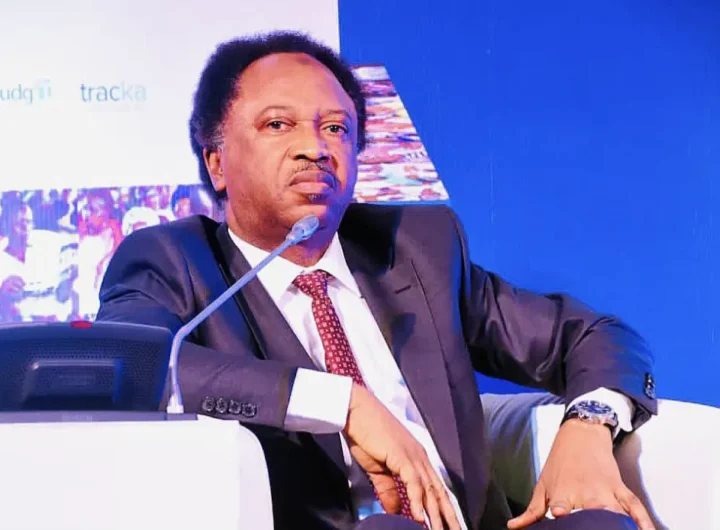 Shehu Sani Refutes Genocide Claim, Says Terrorists Kill Christians and Muslims in Nigeria
Shehu Sani Refutes Genocide Claim, Says Terrorists Kill Christians and Muslims in Nigeria  Peace Talks Show Nigerians Bowing to Bandits: Bukarti Warns
Peace Talks Show Nigerians Bowing to Bandits: Bukarti Warns 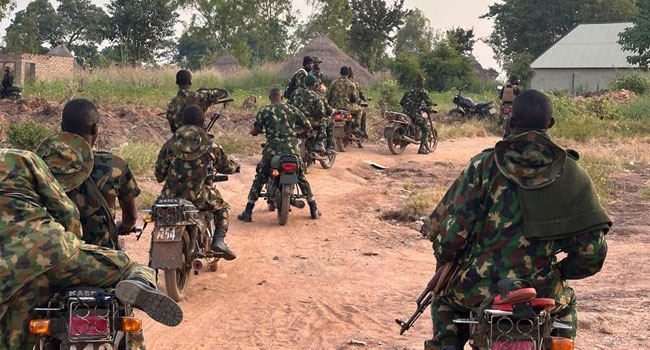 Army Court Sentences 3 Soldiers to Life for Supplying Arms to Terrorists
Army Court Sentences 3 Soldiers to Life for Supplying Arms to Terrorists 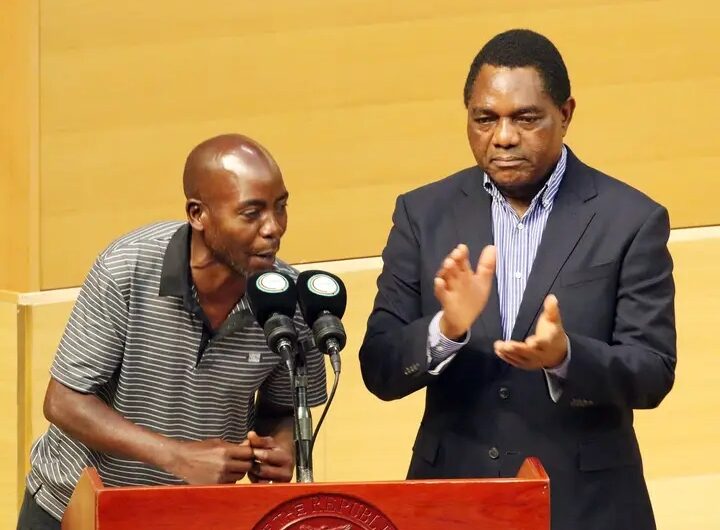 ⬆️ Zambia’s Hichilema Confronts Power Crisis, Admits “Sleepless Nights” Over Energy Shortage
⬆️ Zambia’s Hichilema Confronts Power Crisis, Admits “Sleepless Nights” Over Energy Shortage 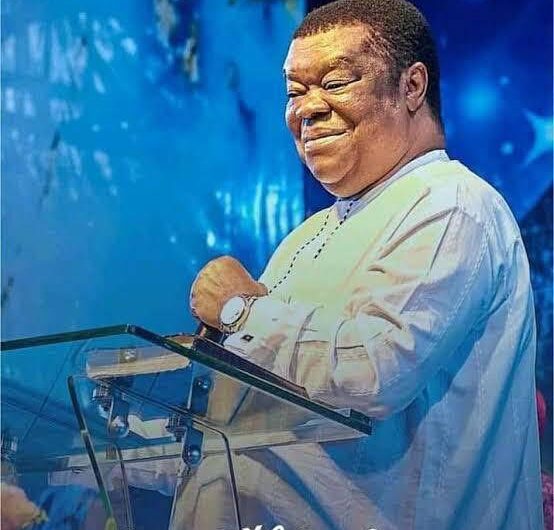 Renowned Nigerian Evangelist Rev Uma Ukpai Dies at 80
Renowned Nigerian Evangelist Rev Uma Ukpai Dies at 80 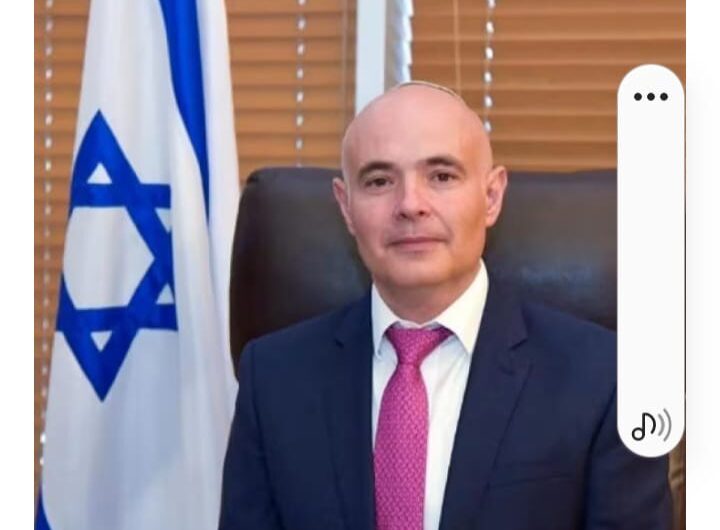 Israel to Deport Nigerian Over ‘PR Stunt’ Gaza Aid Flotilla – Envoy Michael Freeman
Israel to Deport Nigerian Over ‘PR Stunt’ Gaza Aid Flotilla – Envoy Michael Freeman